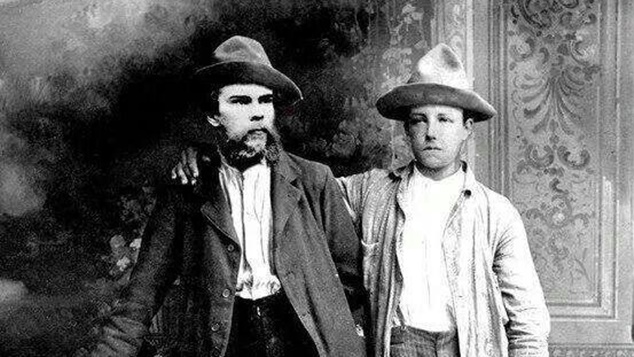There are growing calls for the bodies of poets Paul Verlaine and Arthur Rimbaud to be interred at the Panthéon in Paris.
The Panthéon contains the remains of many of France’s greatest statesmen and scholars including Victor Hugo, Emile Zola, Louie Braille and Marie Curie. Many prominent French politicians have argued that the bodies of the 19th century poets also should be moved to this mausoleum.
The BBC have highlighted that a letter has been signed by ten former culture ministers and hundreds of leading intellectuals, who argue that the two lovers are symbols of diversity. The two men had a violent same-sex relationship and faced discrimination over their sexuality.
“It is a question of simple justice to have them enter jointly into the Pantheon alongside other great literary figures like Voltaire, Rousseau, Dumas, Hugo and Malraux,” the petition reads.
Current Culture Minister Roselyne Bachelot is not a signatory to the petition, but has agreed that the two literary figures are worthy of consideration for inclusion.
Rimbaud wrote most of his works in adolescence, giving up writing when he was just 20. His poems have been cited a major influence on artistic trends that followed in the 20th century including surrealism. He had a two year romance with fellow poet Paul Verlaine, who abandoned his wife and young son to be with the younger man.
The two travelled from Paris to London, and then to Brussels. During an drunken argument Verlaine fired a pistol at Rimbaud, wounding his hand. Despite Rimbaud not wanting his lover to be charged with the offence, Verlaine ended up spending two years in prison where he re-converted to Catholicism.
After their separation Rimbaud travelled widely, but he never returned to writing. He died in 1891 aged just 37 having developed bone cancer. Verlaine moved to England and became a teacher, he fell in love with one of his male students and returned to writing poems. He was heartbroken when the student died of typhus just a few years later.
Verlaine spent his final years plagued by drug addiction and alcoholism, spending his time in Paris cafes. Towards the end of his life there was a growing appreciation of his work and other writers, musicians and painters began to cite him as an influence. He died aged 51 in 1896.
While many people feel the two writers should be given one of France’s highest honours by moving their bodies to the Panthéon, others have highlighted that state recognition in hardly in line with the artist’s libertarian and rebellious personal values that were reflected in their work.
OIP Staff

Love OUTinPerth Campaign
Help support the publication of OUTinPerth by contributing to our
GoFundMe campaign.






